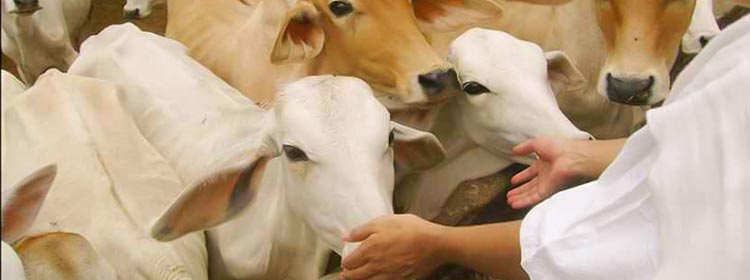- June-11-2019
Gau Seva
Gau Seva
The Oceanic Pharma company has tripled its spending on gaushala maintenance in the last three years. “We are interested in all kinds of gau seva. Our primary objective is to save the cows from butchers and slaughter houses,” whose company’s gaushala maintenance project is said to protect one of the highest number of cows under one roof. When Shah founded Oceanic Pharma six years ago, he included gaushala maintenance as part of the pharmaceutical company’s corporate social responsibility (CSR) mandate.
The Oceanic Pharma is not alone. Many companies, including Tata Power, Fullerton India Credit Co. among others, are spending a portion of their CSR spend on gaushala nurturing or cow upkeep. While the main objective is cow protection for companies like Oceanic Pharma, for others it’s livelihood support of rural population through cattle welfare.
The Companies Act 2013 rules firms that have a net worth of Rs 500 crore, earnings of Rs 1,000 crore or net profit of Rs 5 crore to spend at least 2% of normal net profit for the previous three financial years on CSR activities. Gaushalas and cattle health come under the broader umbrellas of animal welfare, subsistence and rural development activities covered under Schedule VII of the Act. Oceanic Pharma currently spends 25% of its total CSR expenditure on gaushala maintenance, up from 10% three years ago. “We don’t mind going up to 50% in the next couple of years,”
The company organises medical camps for cattle in 20 villages near its plant. “Oceanic is focusing on improving the livelihood of local farmers through cattle welfare. We started with two camps a year and doubled it to four,” said Shah.
In the last few years, the company has provided medication to 475 cows and buffaloes and plans to moreover scale up the programme going ahead.
Oceanic Pharma, through its wholly-owned provides replicable models for establishing fodder supply centres and building gaushalas in the Kutch region to help grow livelihood options. The company has begun other infrastructure work in gaushalas including constructing drinking waterlines for cattle troughs, construction of overhead tanks for cattle, weighbridges and fodder storage yards.
“Strong commissioning of the programme has resulted in a big rise in livestock, and increase in the revenue of the cattle owners. The initiative has encouraged more people to engage in the business of animal husbandry,” a company spokesperson said.
The company also has ‘Gopals’ who educate farmers about better, healthier cattle. “The main objective of our cattle welfare initiative is to enhance livelihood of communities by improving cattle productivity,” says Shah.
“There are numerous companies that are spending on cattle welfare as part of CSR now,” said the founder of one of the leading CSR and sustainability control platforms, who did not wish to be named. “Sometimes there are organizations — particularly in foods and dairy industry — for whom cattle welfare is a business concern. It helps farmers get a higher income by enhancing cow productivity while also improving the supply chain.”
For Shah of Oceanic Pharma, the primary objective remains gauseva but he doesn’t completely rule out the broadening of that vision. “Cow products have been proven scientifically good,” he said. “Right now it is not associated with our trade but who knows we might come up with a business case and related products.”
